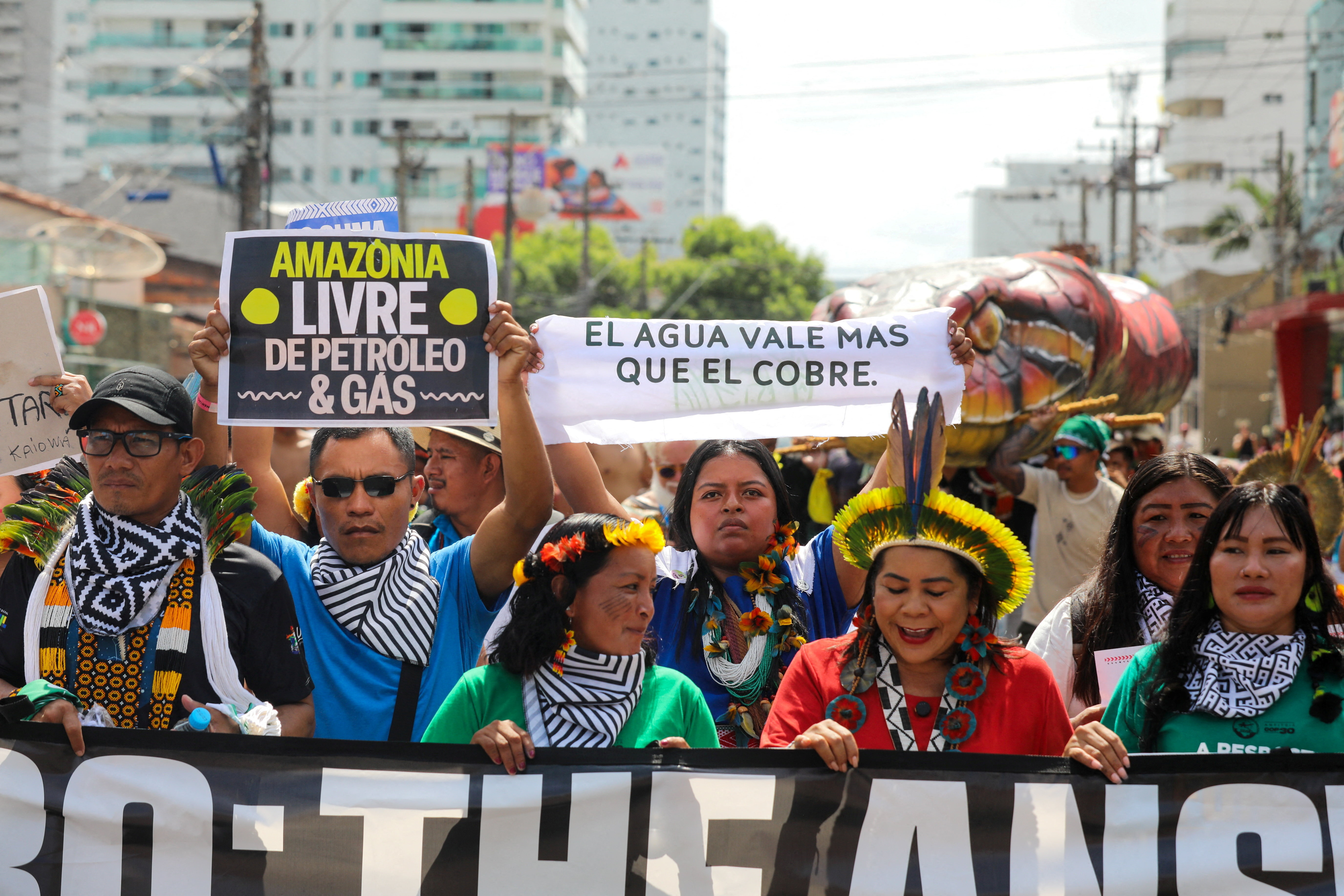COP30 reached mid-point during the weekend, but despite the positive spin by the hosts Brazil, real progress made so far is limited. Even though more progress is likely this week, expectations remain low. That’s why emphasis is on implementation of earlier COP decisions.
Last year the G20, that ironically took place in Belem Brazil, came to the rescue of COP29. But it does not look likely this year’s meeting in South Africa will do the trick.
The US Administration not only skipped COP30 – for the first time in 30 years – but has also shunned G20, even though it is supposed to be presiding it. The absence of China’s President Xi Jinping and Argentina’s Milei compounds the challenge. No major decisions of policies are expected to come out of it, let alone breathe life into COP30. The FT headline was “G20 ‘dormant’ as Donald Trump boycotts South Africa summit.”
The lack of direction from G20 will be felt at this year’s UN climate summit in Brazil. That prompted André Corrêa do Lago, the Brazilian chief of COP30, to say that “rich countries ‘no longer care’ about tackling climate crisis.”
One positive note, though, is the serious progress being made by the world’s biggest emitter, China, in tackling climate change. For the first time, it has pledged to cut its total greenhouse gas (GHG) emissions by 7–10 per cent from their peak and increase the share of non-fossil fuels in its total energy consumption to over 30 per cent by 2035.
China is showcasing its progress at COP30.
Protesters enliven proceedings
The subdued atmosphere was at least lifted by Indigenous protesters and environmental activists that turned out in their thousands demanding governments step-up efforts to combat climate change and protect nature.
This is the first COP since COP26 that protests have been allowed by democratic Brazil to take place. Demonstrators on Friday blocked access to the entrance to the conference for several hours.
They are complaining that even though they have regained the right to protest, their concerns are not being addressed in the negotiations that are taking place.
Not surprisingly, much of the ire and mockery is addressed to President Trump, who they blame for undermining climate action.

Fossil fuels
There is concerted effort to adopt a roadmap for the phase-out of fossil fuels, based on the COP28 decision to “transition away from fossil fuels,” with backing from the UK, France, Germany, Denmark and Kenya and others. They are trying to rally a sufficiently large number of countries to force the issue.
But that would be a challenge, especially in view of the actions of President Trump in boosting fossil fuels and blocking renewables.
It is ironic that despite President Lula pushing for COP30 to deliver a more detailed “road map” on a global transition away from fossil fuels, Brazil plans to expand oil and gas production. In fact, President Lula said at a pre-summit meeting that “it would be irresponsible for Brazil to quit oil.”
Past efforts to discuss moving away from fossil fuels have stumbled as a result of blocking tactics employed by oil and gas-producing countries led by Saudi Arabia. It is also estimated that as many as 70 countries are opposed to any new decision out of COP30 that addresses fossil fuels.
With over 1,600 delegates from fossil fuel sectors attending COP30, 12 per cent up on COP29 – outnumbering every country delegation besides Brazil – agreeing any ‘phase-out’ wording would be tough.
Protection against deforestation gaining support
President Lula is pushing for a new roadmap to tackle deforestation. In fact, he has made tackling deforestation a core aim of COP30. Brazil is keen to make this the “Amazon COP.”
Countries, such as Norway, France, Brazil and Indonesia have already pledged support for a fund, known as the ‘Tropical Forests Forever Facility’, that seeks to secure $125 billion.
The fund seeks to turn” the economic logic of deforestation on its head by making it more lucrative for governments to keep their trees rather than cut them down.” Under this, countries will be eligible for payments as long as they keep deforestation below a set rate.
Far off track
Most nations have now published their Nationally-Determined Contributions (NDCs) for 2035. Analysis by the UN indicates aggregate carbon emission reductions of 12 per cent from 2019 levels. Even though this is significant given performance so far, it is substantially lower than what is needed to meet the Paris temperature goals – about three-times as much.
Not only that, but also big emitters like India and Saudi Arabia have not yet submitted their updated NDCs. In addition, experience so far shows that actual performance falls well below stated pledges.
That forced Jim Skea, head of IPCC, to say at Belem that, despite massive growth in renewables, “it is now almost inevitable that 1.5C of global warming will be exceeded in the near term.”
This should, hopefully, help focus discussions on a new ‘Global Goal on Adaptation’ this coming week. Developing countries are calling for tripling adaptation finance by 2035.
What is still to come
Apart from fossil fuels, the most contentious issue will be finance. It was agreed at COP29 “to provide $300 billion annually by 2035, with a wider ambition to reach $1.3 trillion from a range of sources.” A roadmap for scaling up climate finance has already been published and will form the basis for tough negotiations this week.
Other issues still requiring consensus include deforestation, protection and restoration of nature and transformation of food systems, funds for responding to loss and damage and of course the world can keep pushing for climate action in the face of resistance from Trump.
This coming week discussions stop and high-level diplomacy and decision-making kick-in.






Click here to change your cookie preferences